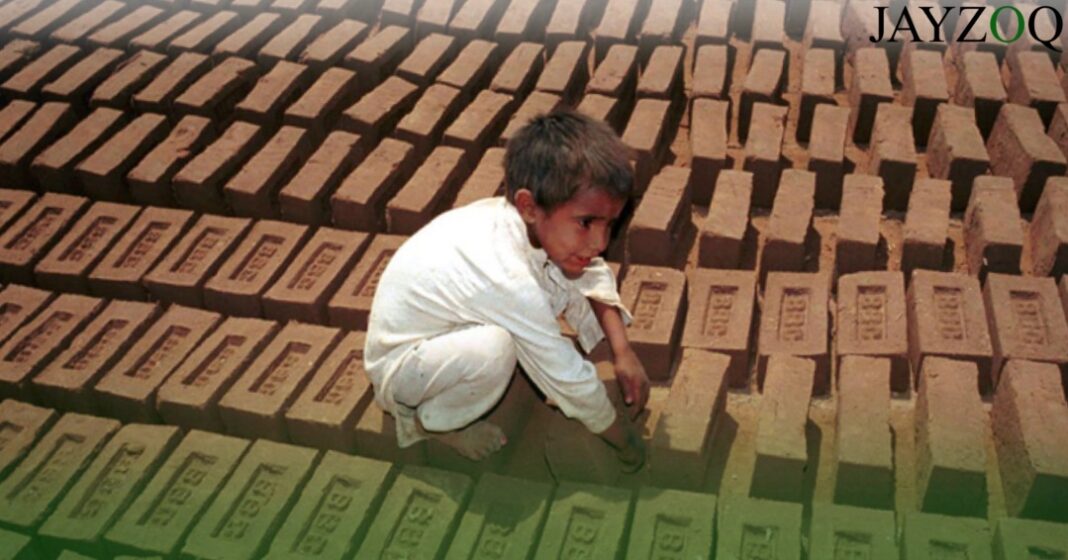Look around you. Sift through your memories. Think about the children you’ve seen gazing out of the screened window of your car. You will remember countless children begging on the streets, selling flowers and other items on the crossways, delivering trays of steaming chai to salesmen in the bazaars, doubling as vendors at night, cleaning cars near busy markets and working in your or your relatives’ homes as domestic help. Remember the dullness of their eyes, their gaunt limbs, the perplexity in their gazes. In our country, millions of children are robbed of their childhood and their education and it’s about time we acknowledge the role we play in this societal injustice and raise our voices for the underprivileged.
If we look towards the law, any sort of hazardous work i.e. employment in factories and mines, which could damage the health, development or schooling of children, is banned under 14 years of age. The constitution has also made the education of all children up to 16 years of age compulsory and outlawed military service under 18. Despite their being laws against child labor, this problem continues to plague Pakistan due to the lack of implementation. As poverty rates surge to alarming levels, so does child labor as families depend on their children to earn money. These helpless children drop out of school because of the substandard, subpar quality education of most underfunded public schools.
To fully understand the prevalence of child labor in Pakistan, we can divide it into three categories: industry, agriculture and services sector.
Foremost among the industries, child labor is most prevalent in the coal mining industry. To work in a coal mine in Pakistan is equivalent to entering the valley of death on a daily basis. Baluchistan, with its abundance of coal fields, for example Shahrag and Quetta, faces rampant and unchecked child labor as orphans are recruited on low wages. They’re given no personal protective equipment and often fall prey to diseases such as methane gas poisoning, black lung disease and asthma. Even more unsettling are the widespread reports of harassment and child sexual abuse of children in the deep, dank caverns of coal mines in Pakistan.
As the brunt of child labor is in the industry sector, many children also work in small scale industries such as carpets, glass, surgical instruments and sports goods. Due to this labor, many of Pakistan’s products are boycotted in the international market.
Focusing on Hyderabad, Sindh, as a microcosm of child labor in the agriculture sector in Pakistan, a research article by the Arts and Social Sciences Journal found that only poverty and illiteracy are the main factors contributing to child labor. Children are involved in harvesting the crops and grazing livestock. Illiteracy has a double fold impact in this case, as schools are either inadequate or nonexistent in most rural settings, on top of the fact that most parents, being illiterate, do not consider education a necessity for their children and continue to deprive them.
Child labor in the services sector is most predominant in urban hubs. This work can range from working in restaurants and hotels to driving transport vans and buses to hawking goods. Lastly, the form of child labor that my readers will be most familiar with: domestic help. We’ve all seen the children that maids bring along with them to “help out”. We’ve seen young children kept away from their rural homes in cities, working day and night in posh, rich houses.
Before any of us get the right to even criticize child labor or contribute towards stopping it, we have to start with ourselves, at home. We must take a stand against child labor because our voice is powerful. Each and every child matters and we must make sure that we’re on the right side of this battle. To paraphrase Malala Yousafzai,
“One child, one teacher, one book, one pen can change the world.”






